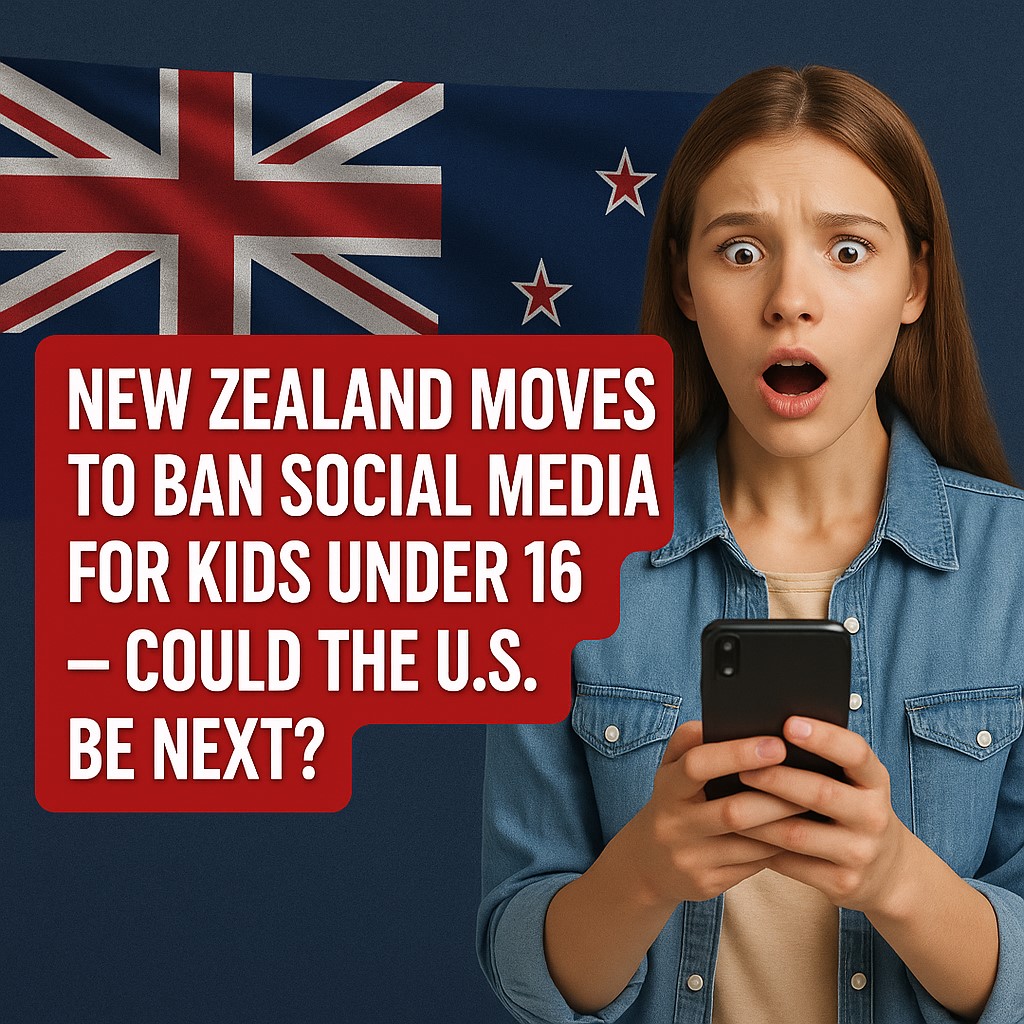
New Zealand just proposed a law that would ban children under the age of 16 from having social media accounts. That includes Instagram, TikTok, Snapchat — and yes, even YouTube.
The twist? YouTube is reportedly arguing it’s not social media at all and is considering legal action.
In New Zealand’s eyes, YouTube is “social media” because it lets users create, share, and interact with content — comments, live chats, likes, and community posts — all the hallmarks of a social network. YouTube may counter that it’s more of a video platform than a social community. That fight alone could be fascinating.
But it raises a bigger question for constitutional appeals lawyers here in the U.S.: Could this happen here?
First Amendment: The Immediate Roadblock
In the United States, any blanket ban on social media accounts for people under 16 would face serious constitutional challenges. The First Amendment protects the right to receive and share information — and courts have recognized that this applies online.
States that have tried to impose strict social media restrictions on minors have already been hit with lawsuits. Earlier this year, for example, a federal judge struck down parts of an Arkansas law that limited young people’s online access, citing free speech concerns. A similar result was reached in 2023 with respect to a California law that restricted minors’ access to the internet.
Parental Rights and the “Who Decides?” Question
There’s also a parental rights issue. In the U.S., the Supreme Court has recognized that parents have a fundamental right to direct the upbringing of their children. A total ban could be seen as the government stepping into a role traditionally reserved for parents.
The Commerce Clause Problem
Social media platforms operate nationwide — and globally. A single state trying to ban accounts for under-16 users could run into the Commerce Clause of the Constitution, which limits states from making laws that excessively interfere with interstate commerce. Any such law would have to navigate federal preemption issues.
Enforcement: The Practical Nightmare
Even if such a ban were somehow constitutional, how would it be enforced?
- Age verification means handing over sensitive personal data — something privacy advocates strongly oppose.
- Kids lying about their age online is already widespread.
- Section 230 of the Communications Decency Act limits platforms’ liability for user content, making it harder to hold them responsible for age violations.
So Could It Happen Here?
Short answer: Highly unlikely — at least as a total ban. The U.S. Constitution’s free speech protections, parental rights doctrines, and federal regulatory structure make it nearly impossible.
That doesn’t mean lawmakers won’t try. Expect to see more targeted regulations — such as age verification for certain platforms, parental consent requirements, and limits on algorithmic recommendations for minors — rather than outright bans.
Final Thought
New Zealand’s law will be a fascinating test case — especially if YouTube challenges its classification as “social media.” If they win, it could embolden platforms everywhere to try similar arguments. If they lose, it could cement the idea that any platform with user interaction is a social network, no matter how it brands itself.
Either way, the U.S. is unlikely to see a similar total ban any time soon — but the legal battles over kids and social media are just beginning.
Image Credit: OpenAI DALL·E.
 Law Office of Jason Ostendorf LLC
Law Office of Jason Ostendorf LLC